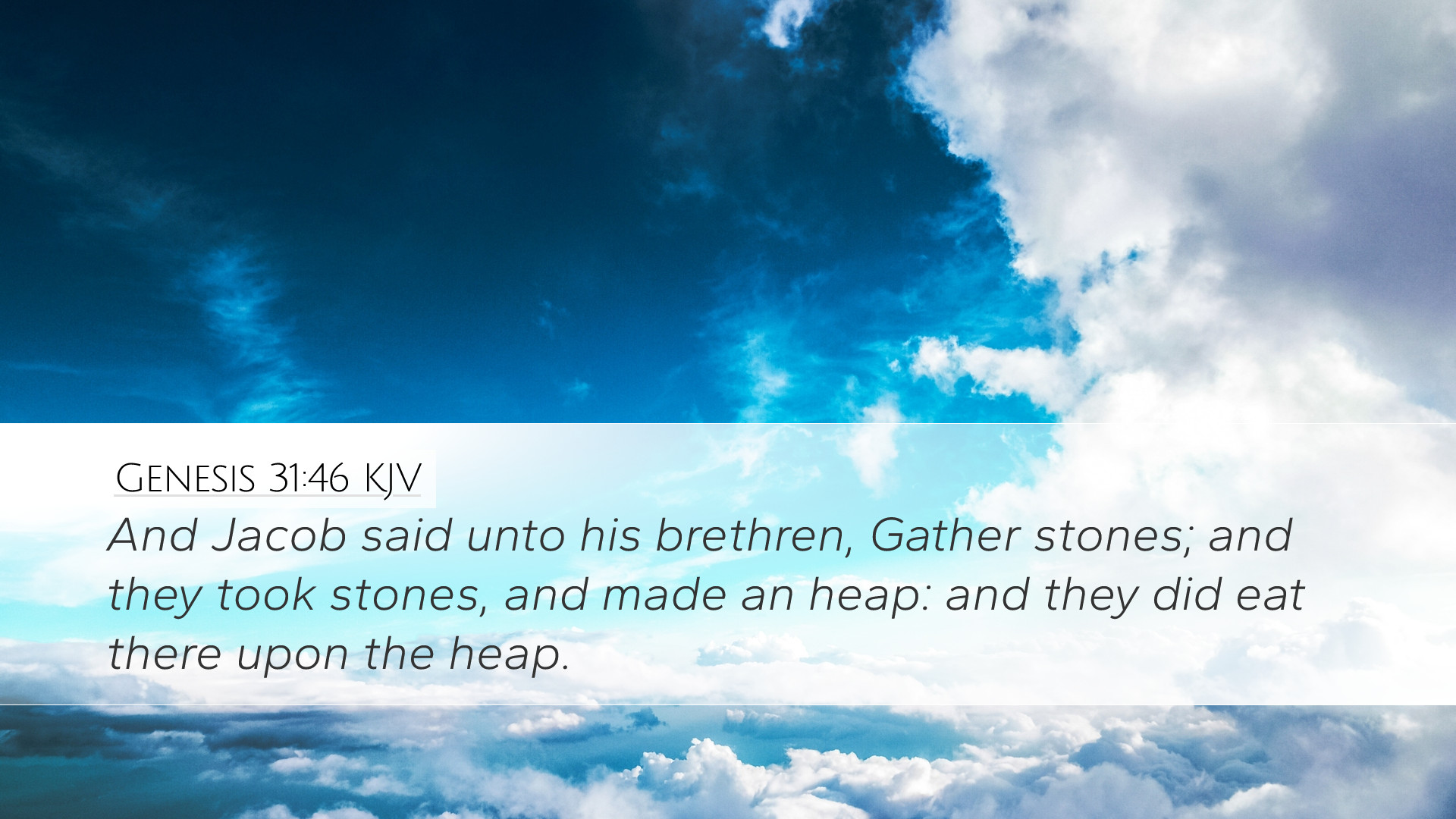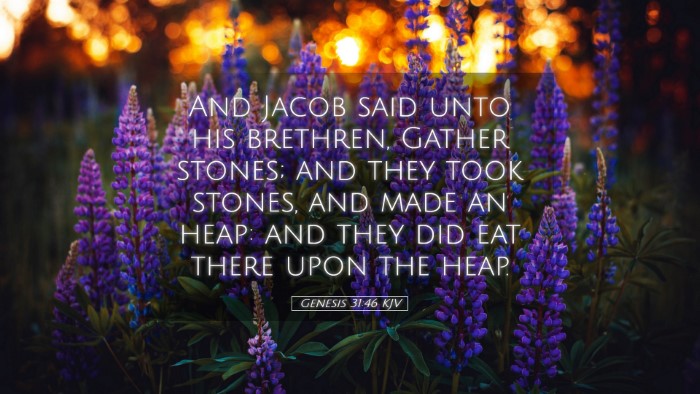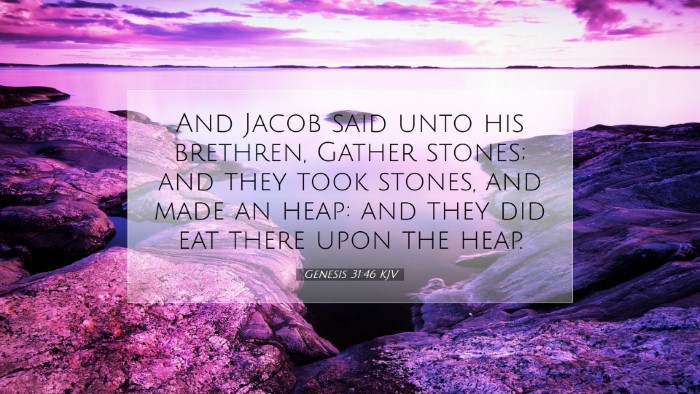Commentary on Genesis 31:46
Verse: Genesis 31:46 - "And said unto his brethren, Gather stones. And they took stones, and made a heap: and they did eat there upon the heap."
Introduction
This verse captures a pivotal moment in the narrative of Jacob and Laban, showcasing a significant interaction driven by the need for resolution and a covenant. Commentaries from reputable sources elucidate the deeper meanings and implications of this event, contributing to our understanding of familial relationships, covenantal practices, and the symbolic significance of stones in ancient Near Eastern culture.
Contextual Analysis
The context surrounding Genesis 31:46 is crucial for understanding its full significance. Jacob has fled Laban’s household, driven by a desire for independence and the fulfillment of God's promise. Laban pursues him, leading to a tense confrontation. This particular verse occurs after Jacob and Laban agree to a covenant, marked by the gathering of stones—a traditional method symbolizing stability and witness in relationships.
Historical Insights
In ancient cultures, such as those surrounding Jacob, creating a stone heap served as a tangible reminder of a covenant. Albert Barnes notes that this heap symbolizes the boundary between Jacob and Laban, ensuring that neither would cross to harm the other. This act of stone gathering also emphasizes the shared responsibility of maintaining peace and covenant fidelity.
The Role of Stones
Stones in this context are rich in meaning. According to Adam Clarke, the act of gathering stones represents the human effort to establish boundaries and to mark significant moments in history. The heap represents both permanence and a means of remembrance. It serves to remind the parties involved of their oath and the peace treaty established—an essential factor for maintaining harmony post-conflict.
Thematic Exploration
Covenant and Community
This passage emphasizes the importance of community and the collective action taken to resolve conflicts. The act of gathering signifies a joint agreement and the willingness to move forward rather than dwell on past grievances. As Matthew Henry observes, this communal effort reflects the nature of covenant in the biblical narrative, where relationships are formed not in isolation but within community contexts.
Symbolism of the Feast
The communal meal that follows the stone gathering easily goes unnoticed but holds substantial theological implications. Eating upon the heap represents a sacred act of fellowship, reaffirming the commitment made. As noted by various commentators, meals are often a symbol of unity and peace in biblical narratives. This act serves as a restored fellowship between Jacob and Laban, signifying that a new chapter begins, grounded in mutual respect.
Theological Implications
God’s Sovereignty
This interaction underscores the overarching theme of God’s sovereign plan. Jacob’s journey, fraught with challenges, repeatedly points back to divine guidance—highlighted even here in this covenant-making moment. Jacob’s recognition of God's providence in his life frames this entire episode. Both Henry and Clarke align on the notion that in resolving human conflicts, God often orchestrates situations to fulfill His promises.
Lessons for Modern Believers
This passage holds vital lessons for contemporary Christians, pastors, and scholars. It encourages the practice of reconciliation, negotiation, and mutual respect in conflicts. Gathering stones as a symbol of commitment can translate into modern practices of establishing trust and peace in relationships. This act can encourage the congregation to reflect on their relational dynamics and the importance of covenants, whether in family, church, or community contexts.
Conclusion
Genesis 31:46 encapsulates the essence of human relationships grounded in covenantal love and respect. The wisdom from commentaries by authors like Matthew Henry, Albert Barnes, and Adam Clarke enriches our understanding of the theological and practical dimensions of this passage. As such, this moment serves as a timeless reminder of the human experience— navigating conflict, establishing boundaries, and fostering community through shared commitments.


